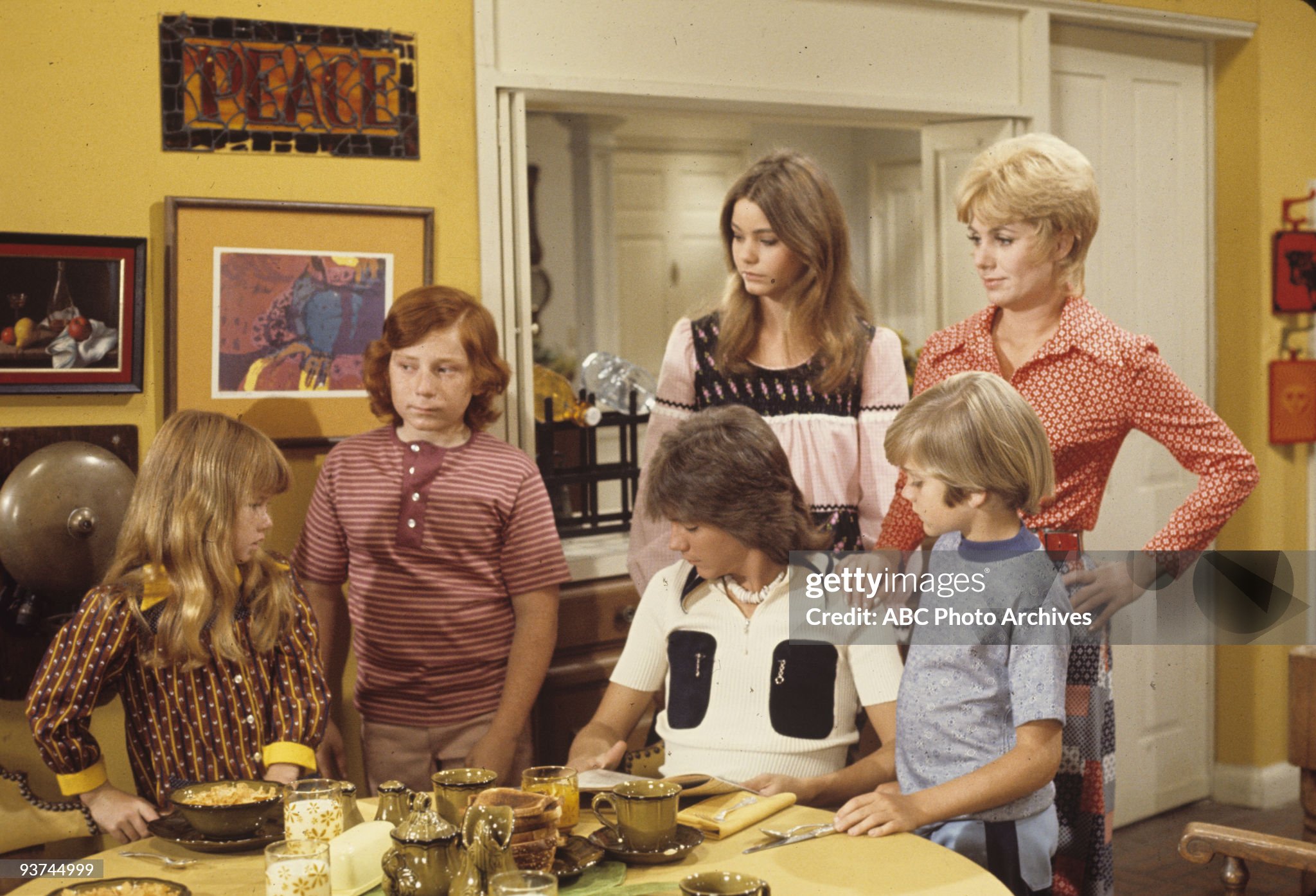
A gentle vow set to late-summer light—The Partridge Family’s “Brown Eyes” is the sound of noticing someone with your whole heart and promising to be kind with what you see.
Let’s set the anchors up front. “Brown Eyes” is an album cut—not a single—from The Partridge Family: Sound Magazine, released in August 1971 on Bell. It’s placed second on side one, runs about 2:44–2:45, and was written by Wes Farrell and Danny Janssen. Studio logs for the album date the session to May 4, 1971 at United Western (Hollywood), with David Cassidy out front and Wes Farrell producing. The album, not the track, carried the chart story—Billboard Top LPs No. 9 with RIAA Gold that same month—while “Brown Eyes” later resurfaced on compilations like At Home with Their Greatest Hits and The World of the Partridge Family.
If you remember the TV series as much as the records, you likely first met the song on Season 2, Episode 4, “The Undergraduate” (aired October 1971), where the family rehearses it in the garage—a tidy example of how the show braided new LP tracks into living rooms before and after release day. Seeing the tune in context—Shirley juggling school and family while the band finds its pocket—adds a layer of warmth that the vinyl alone can’t supply.
On paper the personnel read like a postcard from early-’70s Los Angeles pop craft: Hal Blaine (drums), Max Bennett (bass), Dennis Budimir and Louis Shelton (guitars), Larry Knechtel and Mike Melvoin (keys), with the Ron Hicklin Singers (the Bähler brothers and Jackie Ward) tucking harmonies around Cassidy’s lead. It’s the Sound Magazine house sound at full warmth—precision without pretense.
Spin it now and you can feel how simply it’s built. A soft backbeat that reassures rather than insists; a bass line that walks you forward without hurry; guitars throwing tiny glints at phrase ends like sun on a windshield. Cassidy doesn’t oversell the lyric—he leans into it with the unforced neighborliness that defined his best vocals, trusting the melody to do the carrying. The production leaves air around him, which is why the chorus lands like a hand laid gently on your shoulder.
What’s the song saying? It’s a modest pledge dressed as a compliment: I see you the way you wish to be seen—and I’ll take care with that knowledge. That theme—recognition as tenderness—became a quiet specialty of the Partridge project at its best. Where bigger hits like “I Woke Up in Love This Morning” flash with radio confidence, “Brown Eyes” speaks in smaller rooms, the sort of tune that makes sense in a kitchen after supper or on a late drive when the streets are empty. For older listeners, that restraint is part of the pull. The song remembers a stage of love when grand declarations aren’t half as moving as a few true details, offered softly.
Placed inside Sound Magazine, the track helps explain why so many fans still call this their most consistently crafted LP. The record balances marquee singles with deep cuts that do the everyday work of being lived with. “Brown Eyes” is one of those keepers: too intimate to chase a chart, too sturdy to fade once the single has run its course. That’s also why the song kept traveling—turning up on later collections that aimed to bottle the show’s friendliest light in one place.
Listen closely and you’ll hear the small studio mercies that made this catalog age so well. Blaine’s snare sits a breath behind the beat, keeping the floor steady; Bennett’s bass nudges the verse without crowding it; the background voices bloom just long enough to suggest company, then step back. Nothing clamors for attention. The arrangement behaves the way good affection does—present, helpful, never showy. That’s part of why a two-and-a-half-minute album cut from 1971 can still open a window in the room you’re sitting in now.
A few scrapbook pins, neatly filed: Artist: The Partridge Family. Song: “Brown Eyes.” Writers: Wes Farrell / Danny Janssen. Album: Sound Magazine (Bell, Aug 1971), side one, track two; length ~2:44–2:45; recorded May 4, 1971 at United Western (Hollywood); producer: Wes Farrell. Chart note: not a single; parent LP Billboard Top LPs No. 9, Gold. TV: featured in S2E4 “The Undergraduate.” Later comps: At Home with Their Greatest Hits, The World of the Partridge Family.
Cue “Brown Eyes” again and notice what returns. Not just the hook, but the way it restores a room’s temperature—how a small, well-made song can make you feel seen without asking for anything in return. That’s a rare gift at any age, and exactly why this little cut from 1971 keeps shining